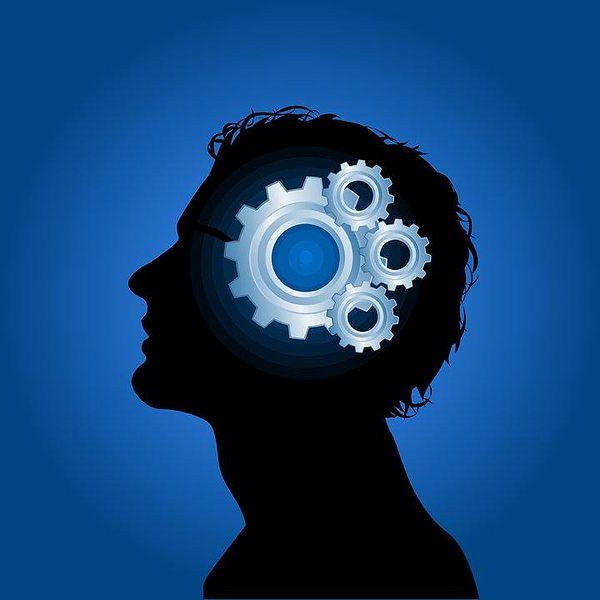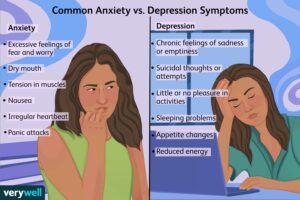
Difficulty concentrating, easily distractible, poor working memory, trouble starting or finishing tasks, lack of motivation. This list might seem like what someone who struggles with attention might experience, such as with Attention Deficit-Hyperactivity Disorder (ADHD), but did you know that people experiencing other mental health conditions can deal with these issues too?

Anxiety and depression are two of the most common mental health disorders. According to the CDC’s Household Pulse Survey, 30% of US adults reported experiencing anxiety and/or depression symptoms in 2023. You might have a colleague, friend, or family member who experiences one or both; you might experience them yourself. The most common symptoms of anxiety are excessive worry and feeling on edge, while the most common symptoms for depression are depressed mood and loss of interest in daily activities. However, while emotional symptoms are commonly associated with many mental health conditions, cognitive symptoms are also incredibly common in anxiety and depression. These symptoms impact how people think, make decisions, and react in daily situations. A 2015 study found that people with generalized anxiety disorder may have impaired selective attention and working memory than healthy people. This means that the people with anxiety were not as easily able to filter out distractions and irrelevant information while retaining important information during a task. This could mean, for example, that they have trouble filtering out distracting side conversations in a busy environment and stay fully engaged in their own conversation. Another study shows that people with depression have similar attention and memory impairments along with a reduction in how quickly they could process information given to them quickly compared to healthy people. They might not be able to answer a question as quickly because they need more time to process what the question means and how to answer.
If emotional and cognitive symptoms are both present in anxiety and depression, then how are emotion and cognition connected in these disorders? Scientists are still exploring the details. The main hypothesis to date focuses on improper signaling between the medial prefrontal cortex and the limbic system. The medial prefrontal cortex is a region at the front of the brain responsible for decision and goal making, reasoning, motivation and how we interact with others. This region helps us make logical decisions, like preparedness if you’re going camping. The limbic system is a collection of brain regions in the middle of the brain that are responsible for emotions, learning, memory, and reward. This region invokes the feeling of fear if you see a bear in the woods or the feeling of reward from eating your favorite snack. In both mice and in humans, the prefrontal cortex and some regions in the limbic system are smaller in volume in people with depression than in healthy people. Their smaller size would limit how much they can communicate between each other. The two brain regions might have trouble talking to each other because of dysfunctional or loss of communication pathways that connect the two regions. This dysfunctional communication might come from impaired synaptic plasticity: the brain’s ability to adapt by making new connections or changing existing connections. If the brain can’t adapt easily to experiences and changes in the environment, then learning and coping with stress becomes more difficult.
If this is such a problem, how do you treat it? Many common drug treatments for anxiety and depression focus on helping patients feel better emotionally but do not focus on or help with cognitive impacts. Ongoing research tackles how to best treat the cognitive symptoms of anxiety and depression, including treatments not typically used for those disorders. More importantly, education surrounding how anxiety and depression can affect a person’s life cognitively can help with providing the kinds of support people need in their personal lives, at work, or at school. Education can also allow people with these conditions to understand what’s happening and how to best advocate for themselves. Therapy is additionally an effective resource to gain tools and skills to manage both cognitive and emotional difficulties. Behavior based- therapies such as cognitive behavioral therapy (CBT) has been shown to effectively help manage and treat both emotional and cognitive symptoms of depression. Even though scientists don’t fully understand how cognitive impacts happen in mental health disorders yet, therapy and support systems can help people with anxiety and depression thrive in the chaos of life.
Peer Editor: Fanting Kung